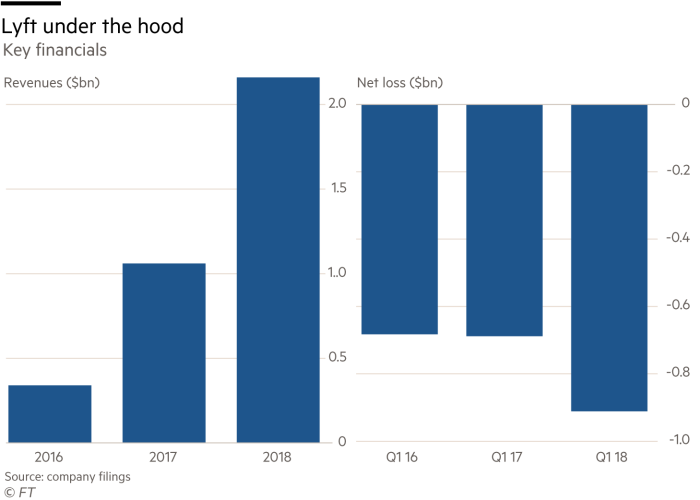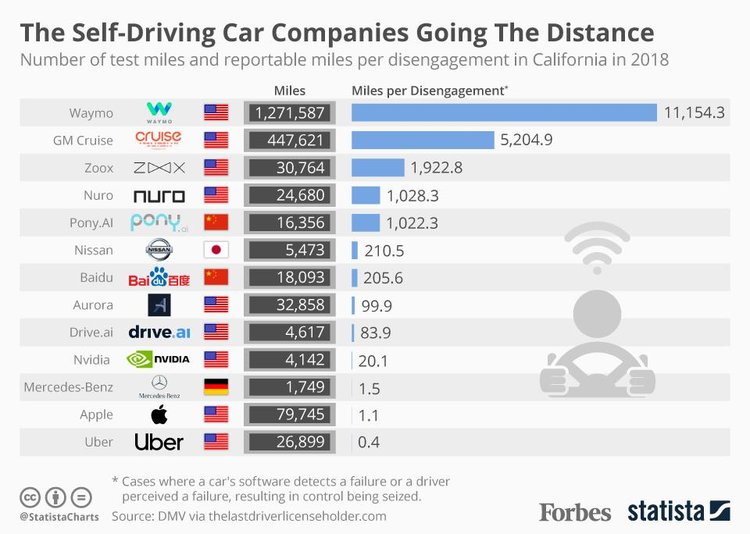Making the most of your training contract

A conversation with Lewis Malkin
Lewis Malkin is a third-seat trainee at Baker McKenzie. You might remember him from our last conversation:”How I Secured Six Vacation Schemes“.
In this episode of Trainee Talk, Lewis discusses:
- What makes vacation scheme candidates at his firm stand out
- How to prepare for your training contract
- How to make a good first impression with your team
- How to manage your workload
- The importance of being proactive on your training contract
Once again, we hope you enjoy listening to it as much as we enjoyed recording it.
[divider height=”30″ style=”default” line=”default” themecolor=”1″]
Listen to the full interview using the SoundCloud player below.
[divider height=”30″ style=”default” line=”default” themecolor=”1″]
Interview Transcript
Jaysen [00:00:00]
Hi, everyone. Welcome to the next episode of Trainee Talk from The Corporate Law Academy. I’m Jaysen, and for this episode, I’ll be your host.
Now, for this episode, we’re back with Lewis Malkin, a trainee at Baker McKenzie. We last spoke to Lewis in a previous episode of Trainee Talk, just before his training contract. So, if you haven’t heard that already, I encourage you to listen to that first. So, Lewis, welcome to the podcast.
Lewis [00:00:24]
Hi, everyone.
Jaysen [00:00:25]
This is actually our second attempt to record this episode and Lewis was kind enough to offer to speak again. So, in this episode, we’re going to spend time talking about your training contract, from the initial few days to how to make the most out of your training contract.
But, actually, before we get to that, I just want to touch on something you said to me recently, because it might be useful for candidates with upcoming vacation schemes. So, as I understand it, you recently had vacation schemers at Bakers. I just wanted to ask, while it’s fresh on your mind, what do you think makes a good vacation schemer?
Lewis [00:00:58]
I was buddies with two quite different types of candidates, and it’s quite noticeable the kind of levels of where they’re at. One of them had actually, ironically, listened to my podcast; it was the first thing she mentioned to me when she met me! So, it’s good to hear that it’s going to good use and the tool is helping people towards getting vacation schemes, and she got the training contract off the back of it.
I think the main qualities of a good vacation schemer are someone who comes obviously prepared, so they already know a lot about the firm, they know what departments they’re interested in and what they want to get out of it. And it means that they’re aware of some of the familiar things in [the] department they’re working in. So, I’m in my third seat, and I now sit in EU, Competition and Trade, and, obviously, that’s very topical. We do a lot of Brexit work, we do a lot of competition merger filings, a lot of trade compliance, and that’s something that people — especially coming out of university — they may not be too familiar with. Because, I can understand that people do EU competition modules, but I’m not sure to what level of depth they go into and how that translates into everyday kind of work, especially involving transactions. What I was really impressed by this one vacation schemer, was that she was already aware of some of these concepts that we were talking about — about trade cartels and listed export controls — and that was something that straightaway struck me. So, it was that level of preparedness of what the firm does, but also what you’ll be doing specifically within that week.
I think the second thing that made her quite a good vacation schemer was, by being aware of what was going on, she already had an idea of what work she wanted to get involved in. And so that kind of made my life a lot easier because I could help her navigate and speak to the people and work with the people that she wanted to. So then it means that you’re already kind of navigating your week as to what work you can get involved in. And, at the end of the day, what I always say to nearly all people I am buddies with for a vacation scheme, is that you’re there to try and get a training contract. Of course, you’ll be doing bits of work, and it’s important to do them right. But, at the end of the day, it will come down most of the time to that interview and the work that you do. And, it’s quite hard to […]stress enough the importance of the interview — but the reason why I’m getting onto this point is because, actually, the work that you get involved in and the preparedness that you have going into that vacation scheme [means] you can control the work you do — and, by doing that, you can control what you talk about in your interview.
I think what I said in the first podcast I did with you, Jaysen, was that your interviews are max forty-five minutes to an hour. You can control a lot of that time and one of the question [sets] you get asked most of the time, at the end of the training contract interview, if you’ve just done a vacation scheme, is: “What work have you done? What have you been involved in? Tell us about why you found it interesting?” And so, if you think about it, if you come in being prepared, and you already know what type of work you want to do, and you have someone who’s going to help you find that work and do that work well, [then] most of your interview is already pretty much done and the hard stuff is already out [of] the way.
So, I think, to summarise, the two things are: someone who shows an interest in what they do and researched it to a really high level of detail, obviously does the work well; you can’t get away if you do rubbish work, it’s hard to justify them getting a training contract because you’ll be working with that person day in, day out. But, it’s also someone who from doing all that work and being that level of prepared is able to understand the end game and able to control it as much as they can.
Jaysen [00:05:11]
That’s fantastic advice. One thing this reminded me of is that a candidate was recently rejected from a vacation scheme and the feedback she received was that she did really well with the work and the assessments, but what let her down was her lack of confidence. Would you have any advice for candidates about that? Because obviously they’re going to be very nervous. Especially if it’s their first vacation scheme, some candidates maybe feel more out of place than others, as well. Do you have any advice about how you can come across, make a good first impression, especially to you as a trainee?
Lewis [00:05:52]
I think everyone has a different kind of first impression and how they go about it. But I think someone who knows what they want to get out of it, but is also truthful about their own limitations. For example, I suffer from quite severe dyslexia, so that hampers me as a trainee, and I often have to spend extra time, a lot [more] extra time, probably, than others, checking my work and checking the level of detail required, because the way my brain works it wouldn’t be the same as someone else. That’s quite a niche example, but when I change seats I usually have that conversation with my supervisor and I say to them: “You know, this is something I know is my limitation and I want to work on.” And, to be honest, if you had that conversation with your trainee buddy you can say: “Well, I’m slightly nervous about this, or I’m not too confident on this.” They already start to understand who you are as a person and no one’s going to turn around to you and say: “Ah, that’s rubbish, you shouldn’t be getting a training contract, you can’t do this.” No, it’s not. We’re all human at the end of the day and I think if you can show that level of human side to begin with, it can make you into quite a personable character — because, at the end of the day, the people who are giving you feedback will be the ones who you know are promoting your cause.
In terms of confidence, to go back to the example [of] the individual you spoke about, I think confidence is hard to get, especially in the work you do, because the tasks you get in a vacation scheme can be so sporadic and it can be just because they need help at that moment from someone who can lend a hand. I think the best thing to do is ask for feedback as much as possible and just do the work to the best of your ability. And hopefully by doing that, your confidence will start to gain anyway. I think the work I did during my vacation schemes was very sporadic. But, as you can probably hear from the first podcast, I did quite a few of them. So, by the end I kind of knew what a trainee’s job was anyway, because I had so many vacation scheme tasks.
Just to summarise, I think you’ve just got to be honest with the person you’re working with; you’ve got to be realistic about your own ability; and just do the work the best you can.
Jaysen [00:08:37]
I think you have really good advice when it comes to applications and vacation schemes, but let’s move on to talk a bit about your training contract. So, can you just remind us — I actually didn’t realize you’ve now moved into your third seat, so you’re not on secondment any more — can you just remind us where you are now and what seats you’ve done?
Lewis [00:08:57]
I’m in my third seat and I’m now sitting in EU, Competition and Trade, and that specifically focuses on a lot of competition work, where in corporate transactions it can be quite sporadic. So, you could be doing a lot of merger filings, ensuring that effectively a merger or a corporate transaction doesn’t breach EU competition law, and which is effectively designed around making a competitive market and not having individual companies monopolise certain markets. I’ve been doing quite a lot of that kind of work. The department also does a lot of broader competition advice and anti-competitive stuff, so vertical agreements and horizontal agreements between parties, which, if you studied EU law, I won’t bore you with the details now, but you can look up online and it’s quite interesting work. We also do trade, so that could be a lot of sanctions work and cartels, which is obviously very interesting because, usually, when things like that come up someone’s done something bad and it’s about working with the clients to minimise damage, and often you have to work with them and go to the relevant commission and authorities to try and limit the damage that can be done to your client. The fines are massive and can really make or break a company sometimes.
The final part is we do a lot of investigations work. So that falls under the umbrella of different competition law and can be holding interviews with two companies who may have formed a cartel. It’s quite an interesting seat because you get the level of corporate to also the litigation side, which I haven’t really experienced yet, and it’s something obviously very interesting.
But, to go back to your original question, so my first seat was in Energy, Mining, and Infrastructure, which is a subdivision of corporate that specialises in working with companies that are focussed in the energy sector. So, the department kind of splits itself between project finance, which is the funding of these massive infrastructure projects, or just the mergers and acquisitions side: so the buying and selling of those companies. After my first seat, I went on secondment to a client at Macquarie. Macquarie is obviously an Australian bank, but within them they have a division called MIRA. And MIRA focuses on the investment in real assets, so they’re almost like a private equity fund in that they get investors from all around the world. They have six funds at the moment, and they invest in different long-term infrastructure assets which will give you quite good returns over a longer period than a private equity firm usually would. That was obviously a very different experience, but because they had these funds set up and the life of the fund is usually about 10/15 years, they need to invest the money because these funds can be six billion euros. They’re massive amounts of money and they have a deal team in there which is always hunting for the next bid, always hunting for the next structure. And they go up against different similar funds. So, it has been quite a spread, quite a corporate [focus], now thinking back on it. But still, it has been really different types of work which I’ve been really lucky to experience.
Jaysen [00:12:34]
In my experience, it’s quite rare to get a secondment in your second seat. How did you manage to do that? Was it an application process? What was it based on?
Lewis [00:12:46]
We have an application process at Bakers and, I actually, I always knew that I wanted this secondment. I was familiar with it before I even joined and [knew] that we had a rolling one. I think I looked at all our clients, and I knew it was a corporate secondment, and I think I just started quite early on working with the relevant partner — who is a relationship partner with Macquarie — and having conversations early on about my interest. There was an application process, and I think it was like a one-page application. But a lot of my application was basically saying that I’ve worked with this company before; I find them really interesting; I think I learned a lot and the deal team sounds fantastic to work with. So, it’s not a complex application that you need to show some really high levels of detail, but I think the reason why I got it was because, in the background, I’d already been working with the half, not very subtly suggesting that I wanted to do it.
Jaysen [00:13:50]
Wow, so you went to this partner, you approached him? Presumably he was in your department, was he?
Lewis [00:13:56]
He was actually in our private equity department, but it’s quite odd because he does a lot of infrastructure private equity. So, I’d been working with an associate in my department who works with him across the department, and he was like: “Well, if you’re interested, go speak to him.” So, I went and spoke to him. I got ten minutes in his diary and told him that was what I wanted to do.
Jaysen [00:14:19]
Fantastic. It shows what you can get when you’re proactive about these things!
Lewis [00:14:23]
A hundred percent. I think one big advice I’d say throughout my training contract has been: If you don’t ask, you don’t get. I don’t think anyone will think it’s cheeky to ask for opportunities — because, if you just sit there, you can’t expect everything to fall into your lap, especially when it comes to client secondments. Or whether it’s like associate transfer programmes, which my firm does, where an associate would go abroad for a year; or international secondments. These things you’ve got to kind of make them happen for yourself.
Jaysen [00:14:53]
Let’s go back a little bit. When you first started your training contract, how did you go about making a good impression to your supervisor and the rest of the department?
Lewis [00:15:03]
I think because I already had a job before, at the firm, I already had an idea of what level of detail they were kind of expecting. And, I think it’s about showing that you can apply the right amount of detail and attention to the work you do. But, I think it goes beyond it; it’s understanding, as a business, how the firm operates, and if you can show these small levels of detail. So, for example, say you get given a task: Your supervisor is giving you an SPA, a Share Purchase Agreement, just to review, and you slapped it on your desk. You don’t really know what the transaction is, you don’t really know what’s going on; and they don’t really have the time to tell you what’s going on, which sometimes happens, sometimes doesn’t. Most people are usually pretty good at it, but in that situation, what I do is — if I wasn’t able to speak to the partner about the deal because he was too busy — I’ll go try to work out who the associates [who] have been working on it are, and try and get some time in their diary. Also, research your client: What is this big transaction? Why are they doing it? And that’s just the more commercial element of understanding what’s going on, that doesn’t require any legal knowledge. That just requires a bit of proactiveness to try and get to grips with the client and what it’s involved in.
And then, when it comes to obviously proofing an SPA, there are different ways you do it. There are different clauses you need to focus on, but that comes with experience and that’s not something you can be expected to pick up straightaway. But I think once you start to get involved in those big transactional documents early on, you start to understand how the whole process works. And then, even if you’re in meetings and you’re able just to start speaking up about “Oh, I’ve been working on this part of the transaction” or “I’ve been working with this document and I see now how this document feeds into the rest of it and how our bids are going to be produced” I think those are the kind of things that start to leave good impressions, because people can understand you’re picking up on how the whole process works within that department. I think to also leave good impressions with your supervisors, as I said, I told my supervisor early on that I suffer from dyslexia and said to him that sometimes tasks take me longer than other people. I think by having that conversation early on with him I was able to straightaway set his expectations of my expectations.
I think it’s quite important to show that you’re not this one hundred percent fantastic trainee; you’re not the finished article because you won’t be. No one’s perfect. But you can show, by having that conversation, you can show that you’re interested in improving a certain area which you don’t think you’re good at. I remember my supervisor honed in on really particular things all the time, and he was like: “I know I can do it because I know you want to improve that area”, and it was a pain in the backside sometimes, it got really frustrating! But it’s the way you’ve got to improve, and if you show that you want to improve, that’s one of the main things you can do to impress them. I think you’ve also got to work with different partners because there’s no point just working with one supervisor all the time. You’ve got to experience the rest of the department, because when they sit down to make a decision as to who they’re going to pick as their next trainee or as their next associate, when it comes to the end of your training contract, you’ve got to have enough people fighting your corner.
Jaysen [00:18:18]
So, you’re doing most of your work for your supervisor, but then you want to do work from other types of people, and that, to a certain extent, is what candidates on vacation schemes do as well.
Lewis [00:18:29]
Yeah.
Jaysen [00:18:29]
But, how do you go about finding that balance, not taking too much work on and just managing your workload?
Lewis [00:18:36]
I think you’ve just got to be honest a lot of the time. Every day, I write a list of all the work I know I’ve got to do. I’ll write two lists on Monday; usually, it’ll be the day and then it’ll be the week. And I’ll use my calendar, because I’ll know what’s coming up and what’s on the horizon, and what’s going to take up a lot of my time. I think you’ve just got to have a few conversations sometimes with your supervisor, and be like: “I’ve got this one, I know I want to do this. Do you think that’s realistic?” Because your supervisor is going to have a hell of a lot better understanding of how long stuff’s going to take you, especially at the beginning of your training contract, and how much time you can afford to allocate to other stuff. I think it depends what relationship you have with your supervisor, because some people have really close ones and all their workflow comes through them. But, some trainees sometimes end up having a quiet associate, or someone who isn’t that proactive, and then they have to go out hunting for work.
You’ve got to be aware of when the busy times are happening. I remember a couple of times when it was like an 80-hour week and it was horrendous! That did involve a Sunday as well, thankfully. So, it wasn’t just spread across five days. But I remember I was really slammed and I was pretty tired going into work and trying to do my work to the best of my ability that I could do. But, at the end of the day, I was still knackered. You can’t take away from that fact. And I still had the head of the department come to me, asking me to do stuff, and it got to a point where I just had to turn around to him and say: “I can’t take this on. I really would like to. Hopefully, if it comes up again please do consider me.” Now, if that doesn’t work, maybe go speak to your supervisor and they’ll have a conversation with that person because no-one’s there to work you to ridiculous levels. The best departments are the ones which spread their workload evenly across their associates and the juniors. But, sometimes that doesn’t happen. Sometimes, you know, people have to work harder than others because that’s just the way it works.
But, I think, even if you can’t do work, it’s about still showing that level of interest, or saying: “Oh, maybe I could do half and this other person could do the other half.” It’s just about finding a solution and not just saying no. It was quite hard at the beginning to get that balance right because you’re not able to understand how long most things will take. So, as I said, it’s important to have those conversations with people who are more experienced than you, early on. And then, as my training contract has gone on, I’ve been more accurate in knowing how long things are going to take me.
Jaysen [00:21:03]
A few trainees, they were actually quite active on TCLA, and they started their training contracts around, I think it was March now, and one of the concerns they had, too, was that they were struggling to find work. And also they were worried about leaving too early. So they were leaving about six or seven, and they were feeling like: “Okay, the other trainees in the department, they’re leaving much later than I am, maybe I’m not making a great first impression.” What would you say to that?
Lewis [00:21:33]
I think you should go when you can!
Jaysen [00:21:34]
That’s what I said!
Lewis [00:21:36]
Yeah, I think you should go when you can. It took me ages. It took me until my first two seats, until when I got my first two marks — because we get given marks for how we perform during our seat — so, really only about a month-and-a-half ago, did I start to feel really settled in my belief that if you’re doing something wrong or you’re not doing good enough, you will get told it. I have a firm belief that there will never be a situation where you do a bad piece of work for someone and they don’t have anything to say about it, or if they have something to say about it, but they choose just to sit on it. I think it is easy to get into that mindset that you think: “Oh, my god. Someone hasn’t replied to my email that I sent yesterday and therefore it must be the fact that it was rubbish.” I don’t think that’s how people work. I think people have different workloads. I think you’ve just got to have faith that if you’re doing something wrong, or if you’re not working hard enough, people will get on you.
There’s high times when I’m really busy. There’s times when, for example, last week I ended up leaving work one day at 2 a.m. and working until 11:00 most nights. That wasn’t a very good week last week. But, you know, this week I managed to say to my supervisor: “Look, I’ve been working pretty hard. I’m going to leave at 5:30 today”, and I just got up and left. I think you’ve got to realise that it’s easy to say it in the concept now, obviously having a training contract and being part of it, but it is just a job at the end of the day, and you need to have a life outside of it. And, if you don’t, you know, I’ve already seen it in trainees who just take on too much work because they’re afraid that they’re not doing enough and they’re doing more than enough. You’ve got to strike a balance. I’ve seen people get too overwhelmed and too stressed. So, take the time when you can to have a life outside of work and enjoy it, especially with the sun coming up! I mean, go outside! Spend as much time as you can: I think it’s really important to do that.
Jaysen [00:23:54]
I remember this is something you talked about the last time we tried to record this. I think it is definitely worth emphasising. It is such an important point that I don’t think many candidates hear from people in the profession. It’s coming out a bit more now, but just the importance of self-reflection and making sure that you do find your own kind of balance and say no to work if you’re too busy, and leave when you actually need to leave, if there’s no work to do.
Lewis [00:24:20]
I think especially as a trainee, because as a trainee you have a bit of a honeymoon period in the sense that you get protected a lot, and I’ve seen associates above me working ridiculous hours. And I think it only gets worse. So, I think you’ve got to take the time whilst you can, to enjoy your job but also enjoy your life outside of it as well.
Jaysen [00:24:42]
Was there ever a point early in your training contract where you were questioning whether this was right for you? Whether this was the right profession to be in?
Lewis [00:24:50]
I think I’ve done that a couple of times throughout my training contract, and I think it would be mad if people haven’t. If you feel you’ve gone through the training contract and not considered it — maybe not mad, that’s the wrong choice of word — but I’d be quite surprised, because, I think, when you’re in the position of applying for training contracts you have this belief that is seen as: This is this holy grail of a job. And, I think, it’s wrong to not suggest that it isn’t — I think it’s a fantastic job and I really enjoy what I do — but when you, when you’re on the other side and you’re trying to apply, and so you get rejected a few times, it seems like this amazing suits-like job that you’ll never get to. And, once you get it, you realise that, actually, you know, there’s good parts to it and there’s bad parts to it.
And, I think throughout my training contract, I thought: “Oh, you know, I find this interesting when I should actually be doing something like this.” And I think it’s important to think about it because, in your training contract, you’re obviously there to try get a job after, but it’s almost like it’s like a two-year vacation scheme; you’re working out what parts of law you find interesting, and do you find it interesting enough to do it? Not forever, but for a much longer period of time? And, I think, what I’ve tried to keep in mind throughout my training contract is that there are other jobs out there; law is not the be-all and end-all of everything. But it’s a fantastic job. If you find something which, I think, I have found, it’s something I find really, really interesting and something I think I want to do as an associate, and more because I get up and I enjoy it. There’s always parts I don’t like, but I like it more than anything else out there at the moment. That’s not to say that, in five years’ time, we could be doing a podcast and I would [not] have gone completely out the profession! Don’t be afraid. Don’t just sit there and say, after two months of your training contract, you sit there and you’re not too sure this is for you, or you think tasks you are getting given are pretty boring or quite standard or not really not that interesting. Then, I think, you just need to take that time out to reflect — and don’t worry, because other people are having that thought process, too.
Jaysen [00:26:57]
One of the reasons our last podcast was – so, that was our most popular recording of the year — you’re just very authentic when you talk about [your experiences]. I haven’t come across many trainees that, at least when speaking to candidates, where they’re open — to an extent they can be — but just open that law is just a profession, that things are good, at the moment, but it’s also okay if you find that things aren’t so good, especially when candidates go into the profession seeing this job as the most amazing thing ever, and they’re lucky to have it. It’s also important to note that you know there is another side of things: It’s okay to have bad days and it’s okay to talk about that.
Lewis [00:27:32]
Definitely. I think also, you know, law isn’t for everyone and I think that’s the great thing about a training contract. As I say the same with interviews, it’s a two-way street. You’ve got to work out if this firm is right for you. But I think a training contract is more you working out whether this job is for you. It’s a bigger question. Whereas the training contract interview is almost like, well, it’s a two-year thing to work out my training as a lawyer, but will I actually want to be a lawyer at the end of it? And I think it’s quite a surreal experience. But you do have to remember that, you know, you are a valuable asset. You are clearly good enough to be a lawyer if you get offered a training contract. You’re clearly capable enough of doing it. So, then it’s actually just about working out, well: Should I? Do I really want to do it? Do I really want to be a lawyer for a foreseeable amount of time? Do I find the work interesting enough? And I think it has taken me until about now to really work that out. And I think going on secondment is very different, as well, because going on my secondment in my second seat, I’d already almost opened up my eyes as to what other jobs are out there, like in-house teams and stuff like that, and that was an interesting experience because it made me feel that I was starting to consider the other things that were available and more, and the other jobs that were available. And I think you should take these opportunities when you can to have those moments to reflect, especially during a training contract, because I spoke to a few people who go in-house and they say, you know, the reason why they did it was because they got used to feeling unhappy with the work they were doing and they thought that was just normal — but actually they had a moment when they realised actually that’s not how work should be.
It sounds like a very sombre process, but I think it’s just about having your eyes as wide open as possible throughout the whole of your training contract, and making sure no doors are shut. And you can find doors that you never thought were there, especially from the example that I said about asking questions about going on secondment. You can create your own opportunities. I think that’s the most important tip I would have for any person going through their training contract, is to have your eyes as wide open as possible.
Jaysen [00:29:49]
How is the work that you did on secondment different to what you’re doing now?
Lewis [00:29:54]
I think it’s better to compare it to my first seat, because they’re both more corporate-focussed. I think the level of responsibility is significantly higher on secondment, so I didn’t really have anyone supervising my work, which, to begin with, was my idea of an absolute hell — because I think in your first seat you work with your supervisor and the people you’re working with, and the way the work flows is, it’ll go to the associate and the associate will then delegate it to the trainee, and there is a clear structure of responsibility. So, you’ll hand it then back to your associate, who may just have a few things to say, make a few comments, and then you send it out to the client, but there’s always that level of supervision. And I did still have a supervisor when I was on secondment, but he wasn’t going to check my work every day, and I think that’s quite hard to get your head around. But I think it really helped me improve as a lawyer, because I then realised that I was responsible for everything and I had to have justified reasons for why I was doing certain things. I think it’s also a bit different when you go on secondment, in that I was dealing a lot more with bigger transactional documents, which I probably wouldn’t have seen as much in my corporate seat. For example, it’ll be like NDA’s, SPA’s, Shareholder Agreements, that kind of stuff I’d be marking up myself. And it’s quite overwhelming to begin with, because you’re still not one hundred percent sure what the most important things are to focus on, but you’ve got a better idea. I actually, I think I learned so much through being given that level of responsibility — and you almost have these sink or swim moments. There are the times when I’d be negotiating points with other lawyers on the other side: it could be like senior associates and I’d be a trainee, and I just have to give off this impression that I wasn’t really a trainee, and it’s quite a weird experience.
I remember my first call I was negotiating, I think it was an engagement letter, and then the other side on the phone they said: “Are you a trainee? Because you sound like you’re a trainee.”
I was like: “Oh, no! The cat’s out the bag!”
It was quite a surreal experience. But, you know, you get more confidence as you go. So, really, I’d say the work differs in the levels of responsibility you get and the exposure to bigger documents, which you probably wouldn’t ever get to work on; also, the random nature of requests. I mean, I think, people in-house when they say they have like a deal team, like a banking team, they would never really have worked with lawyers. I think they believe that all lawyers have answers to all the questions and that we know everything! They just come back with questions on areas of law like employment. I got an employment contract and I was like: “I’ve never done employment law in my life! I’ve got no idea!” And you’ve just got to work through the problem. And, to be fair, most the time if you really need them, you end up going to law firms anyway, so it’s about working with them.
That actually leads me into the final thing. I think the way it differs is that you’re setting the deadlines, so you’re not working to the client’s timelines because you’re the client. It’s quite weird having that level of power, really. But through that experience, you’re able to notice what makes a good law firm or why the client will go back to the law firm. And, usually, it’s because of the levels of quality of their work, their ability to understand the business, and their ability just to work with them through the problem and be there whenever they need them.
Jaysen [00:33:19]
That’s interesting. Just to the point you mentioned before: The first deal I completed, I was, obviously, a first-seat trainee, and there was an associate on the other side. And after, I mean, I could tell that she knew, but she didn’t say anything throughout the whole deal until, right at the end, where she gave me a call and congratulated me for getting through my first deal — and she could just tell! I thought I was pulling it off well, but I imagine she could tell!
Lewis [00:33:44]
The Great Pretender.
Jaysen [00:33:46]
Yeah, exactly! Well, I think, what I eventually started to learn — I think, most of the time, I just didn’t know what I was doing — but it became a case of, sort of like, faking it, making it seem like I knew what I was doing. Being honest if I wasn’t sure, but also, it’s okay to do stuff with a little bit of anxiety or uncertainty, but just getting on with it anyway, and then things usually do resolve themselves.
Jaysen [00:34:10]
You’re obviously on a secondment at a really early stage with very little supervision. How did you handle that uncertainty?
Lewis [00:34:21]
There was luckily a trainee who had been there before me, so I was able to speak to her with a few questions I had, and she just kind of reconfirmed what I thought. And she said: “You know, I’ve been through that similar experience. And, you know, it does get easier over time.”
If there’s something you feel really uncomfortable doing or you’re really not sure, then you’ve got to make the time to ask the relevant people the right questions and try and do it in a way that doesn’t bother them too much. So, go with a list of questions and say: “Hey, this is what I think I’m doing, I focussed a lot on this.” And, don’t be bullied by other people’s deadlines, because, actually, when you’re on an in-house legal team you can set the deadlines quite a lot. So, give yourself that space to not jump to anything when you feel really uncertain. And just be honest with yourself when you think that, say, you don’t feel comfortable, or you don’t really know. There’s no issue in turning around to deal teams and saying, “Look, I need to go and get this signed off by this person” or “I need to speak to this person because I don’t feel comfortable signing off for now.” And they’ll completely understand.
So, I think it’s just about being realistic with your own knowledge and expectations. As you say, not faking it until, or I think you do, I think especially in-house you need to give off this level that you know exactly what’s going on and just biding yourself enough time to work out what needs to be done. And that’s a massive skill in itself. And, it’s not just useful for being on secondment: It’s useful for your training contract as a whole. But I feel like once you’ve mastered that art, it can become a lot easier.
Jaysen [00:35:57]
Has anyone, either at the firm or on secondment, served as a role model to you, or a mentor?
Lewis [00:36:03]
My first supervisor, I had a conversation with him the other day about my training contract, and I said, you know, well whatever happens, whatever department I go into, I’d still like him to be my mentor. And he was more than happy to do it.
I think the reason why he was a role model for me is because he never sweats the small stuff. He understands that the small stuff needs to be done, but he is someone who is able to understand the value of a transaction and really wants to push the department that he’s in forward, as much as possible. And he’s just a, you know, the transactions he works on, he’s a seriously impressive guy. He really knows his stuff. I sat in his room for six months and the way he speaks to his clients is a way that I would like to be as a partner, if I was to become a partner. Just the way he really understands what relationships need to be made, you know, what their concerns are. And he’s able to do it by having a two-minute conversation and really get to the grips of what they’re asking. But, he’s also a role model because he’s just had a newborn baby. He really values his family time as well, and he knows that when he goes home he sometimes has to work, but he sometimes will turn around to me and say: “Look, go home. You know, you need as much family time as I do.” And it’s odd to have that as a role model. But, for me, it is quite important to have that person who understands, to go back to it: the idea that law is just a job, at the end of the day. There’s stuff outside of it as well.
Jaysen [00:37:38]
Slightly different type of question… But what do you normally do for lunch?
Lewis [00:37:39]
I actually met up with my friend the other day and he said I need to start coming down for lunch with the trainees more! So, I usually make my own lunch; it’s really sad, Jaysen! We do have a good canteen, but I like going home, even if it’s really late at night, and cooking my dinner or cooking my lunch for the next day, because that’s something I can control. I always try to go to the gym, because that’s something I like to control. That’s “me” time. That’s what I do. And that’s the way I unwind. I probably will start to when it’s quieted down a little bit more, I will go and eat with the trainees in the canteen — but with my own lunch or, you know, if it’s a really busy day I’ll have lunch at my desk. But, yeah, as I said: I think I like having that control outside of my [work] life, the small things that I can dictate in my day.
Jaysen [00:38:47]
I also did that, and I used to think if I ate at my desk, I could end up leaving earlier. But that never ended up happening! It wouldn’t have made a difference.
Lewis [00:38:56]
Exactly! I think you can end up waiting around for a lot of people to reply to you, and so you could still be sitting there anyway.
Jaysen [00:39:04]
One thing I did struggle with: I used to go to the gym a lot before I started work, and then, at least — you know I was only there for a few months — but for those few months I struggled to find time to put the gym in there or structure my time around it. So, when do you go? How do you make sure you get that time?
Lewis [00:39:22]
I usually do it in the morning before work. And I’ve been lucky the last couple of weeks: I can go in the evening, sometimes. But some days you can’t do it. Sometimes, you’re just there until late and you can’t. But I get really jitty if I haven’t gone, and I actually feel it makes me work worse. So, sometimes I’ve turned around to my supervisor and just been like, “Look, it’s eight o’clock in the evening. I want to go. Do you mind if I just go home? I’ll go to the gym and I’ll log back on in an hour.” And ninety-nine percent of the time they’ll say: “That’s fine.”
So, I think that if you can have those conversations with your supervisors early on and say: “This is one thing that I like to do with my day. Do you mind if I do it?” then most people won’t have a problem with it. It’s just something that I have a firm rule on. And my old supervisor actually had the same rule. He said if you want to go play sport or if you want to go do that in the evenings, as long as you log back on. And, I think, once you’ve done it a couple of times, you create a level of trust and they understand that you’ll definitely do it and you don’t let them down, then, most of the time, they won’t have a problem with it.
Jaysen [00:40:24]
And, presumably, you’re also just checking your phone while you’re at the gym to make sure no emails come for you.
Lewis [00:40:29]
Exactly. So, I’ll have it on me. So, if anyone ever really needs to contact me, which they have done sometimes on the running machine — I’ve had some slightly awkward conversations! And, also, when I’m at the gym, I can see what’s coming in, so I can work out: Oh, actually, thank God I’m going home, because the problem’s already sorted itself out, or we don’t actually need to do that anymore. So, at least I didn’t spend an hour waiting at work to get an email. At least I went off and, you know, did something I wanted to do with my day.
Jaysen [00:41:01] Well, the last time we recorded this, I remember you had to go back into the office. That was like a Friday at, it must be like seven maybe, maybe after?
Lewis [00:41:08]
Yeah, that wasn’t a good day!
Jaysen [00:41:13]
Does it ever feel competitive with the other trainees? Do you ever feel like there is some sense of, you know, everyone’s trying to impress? Because, obviously, everyone wants to make sure they get taken on after their training contract.
Lewis [00:41:25]
Yeah, I think I think it’s hard to get away from that fact, because, unfortunately, everyone is in it for themselves. It sounds very Hunger-Games-esque, but it’s not like that. I think you need to realise that, at the end of the day, you’re there because you want to get a job at the end of it. And there’s nothing wrong with feeling like that. I think some people can go about it in completely the wrong way. So, I would never just completely take all the work from a trainee because I wanted to impress more. Because, I think, you eventually get found out if you have that… I shouldn’t really say it, but kind of “snaky” behaviour. I think you have to go about it in the right way. Say a trainee came up to me and said: “I’m really slammed and I’ve taken on too much work, can you help?” I’ll always help them. I won’t be like: “Well, you know, that’s your fault for taking on all that work!” Because I think that can just end up being a really negative environment to work in. As I say, you need to be aware that you’re there to get a job and you need to make sure that you do the best you can to get a job that you want, because other people will be doing the same thing. But that doesn’t mean that you have to be a complete… I won’t say the word!
Jaysen [00:42:39]
We have some candidates now that… so they’ve secured their training contracts, they aren’t due to start just yet, and I know the last time we spoke to you, you had a little bit of time before you were about to start your training contract; what do you think candidates should be doing? Should they be preparing really hard? Should they take a break? If they should be preparing, what should they be doing before their training contract? Or [do you have] any advice just about that?
Lewis [00:43:03]
They should definitely take some time off, because they won’t be getting that time, that level of time, again, usually. I say the same things to my friends who change jobs. I usually tell them to tell the job you’re going to that you’re starting a bit later, so you can have a little bit of a break. Because, you know, you could go travel, you could do a hobby, you could do whatever you want. But it’s important to get that relaxation time before you start, because, I think, the first couple of months when you’re at work, you’re always anxious and that can take its toll on you and become quite tiring, quite early, quite quickly.
With me, we had two weeks of training before we started our proper training contracts and we didn’t find out what seat we were in until the end of the second week. So, it wasn’t really like I could do that much preparation. But if you know that you’re going to a certain department, I’d say read about the people you want to work with, stay up-to-date with the news and what you find interesting, because that can already start the way you want to shape your six months in that department. I personally would try to switch off as much as you can, because you’ll be switched on at work. Enjoy the time while you can.
Jaysen [00:44:18]
Before you started your competition department, did you go through that as well? Did you research competition or did you just go for it?
Lewis [00:44:26]
We had really intense training, which was really helpful. But for the last two weeks, I did read up on that area of law specifically, because I thought it was something I was really interested in anyway. And it was my preference seat — so we get one preference seat during our training contract — it was one that I knew I really was always gonna be interested in. So, yeah, I did a bit more research into it.
Jaysen [00:44:53]
One final question: Knowing what you know now, is there anything that you found surprising about your training contract or anything worth highlighting?
Lewis [00:45:04]
There are good sides and bad sides to it! Some of the work can be really, really interesting and very topical. And the level of personal relationships you create at such an early stage of your training contract with your peers and other companies, I found to be really surprising. I thought that was a bit of a myth, but you actually do, you actually start to feel really integral to building a client relationship. And I found that side really interesting, as well as specific parts of the law.
But, you know, yes, the work can also be quite mundane and quite boring, but, as it can be with all jobs, I think you get over that pretty quickly. I really like the people I work with and I’ve found that also, not surprising, but the amount I’ve enjoyed working with some people in a team environment has… I thought it was more of a cliché usually, that teamwork aspect. But, you know, it really does end up having people working late and together and you do really get into a team spirit kind of vibe. And I’ve enjoyed that a lot more than I thought I would.
As I’ve said throughout the interview, I’ve been surprised about the amount of opportunities you can create for yourself if you ask the right questions and you’re proactive. I think that’s definitely another thing I’d once again stress. I think [what] people should take away from listening to this is that you can shape your training contract in whatever way you really want to — bar picking the seats. You can work with the people that you want to, and as long as you’re proactive about doing it, you can come out with a job and have had a wonderful two years. It’s really important to do that.
I’ve been just surprised about how willing people are to help you as well. If you show a level of interest in an area and you’re willing to push that forward, most of the time nearly anyone is ready to support you doing that.
Jaysen [00:46:54]
Fantastic. That’s a nice positive way to end this episode. Thank you, Lewis. Your interviews are always very refreshing. The feedback we had from the last podcast was amazing, so I’m sure it would be similar for this one.
Lewis [00:47:09]
Yeah, well, next time, in my fourth seat, I hope to go abroad, so maybe the next time we do this it’ll be from another country. I can let you know what it’s like working in a foreign jurisdiction.
Jaysen [00:47:25]
We get to track your progress to associate and beyond!
Lewis [00:47:28]
Exactly. We shall see!
Liked this episode? Check out the rest of our podcast episodes here.












